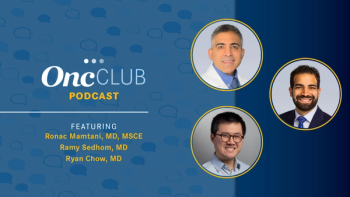
Understanding Actionable Pathogenic Variants Among Caribbean Patients With Breast and Ovarian Cancers
Dr. George and Dr. Hurley discuss the data generated from their study on the correlation between deleterious variants in genes and the development of hereditary breast and ovarian cancers in populations throughout the Caribbean.
Welcome to OncLive On Air®! I’m your host today, Kristi Rosa.
OncLive On Air® is a podcast from OncLive, which provides oncology professionals with the resources and information they need to provide the best patient care. In both digital and print formats, OncLive covers every angle of oncology practice, from new technology to treatment advances to important regulatory decisions.
In today’s episode, we had the pleasure of speaking with Sophia George, PhD, a research associate professor in the Department of Obstetrics & Gynecology, and Judith D. Hurley, MD, a professor in the Department of Medicine, both at the Sylvester Comprehensive Cancer Center, of the University of Miami Health System.
Although it has been known that rates of breast and ovarian cancer are high in the Caribbean, few published data have quantified the prevalence of inherited cancer in those who reside in this region. As such, George, Hurley, and colleagues set out to evaluate whether deleterious variants in genes that characterize hereditary breast and ovarian syndrome are linked with the development of these cancers in populations throughout the Caribbean.
In our exclusive interview, Drs. George and Hurley further discussed the data yielded from their study, called for stronger screening strategies in this region, and outlined next steps for research.






































